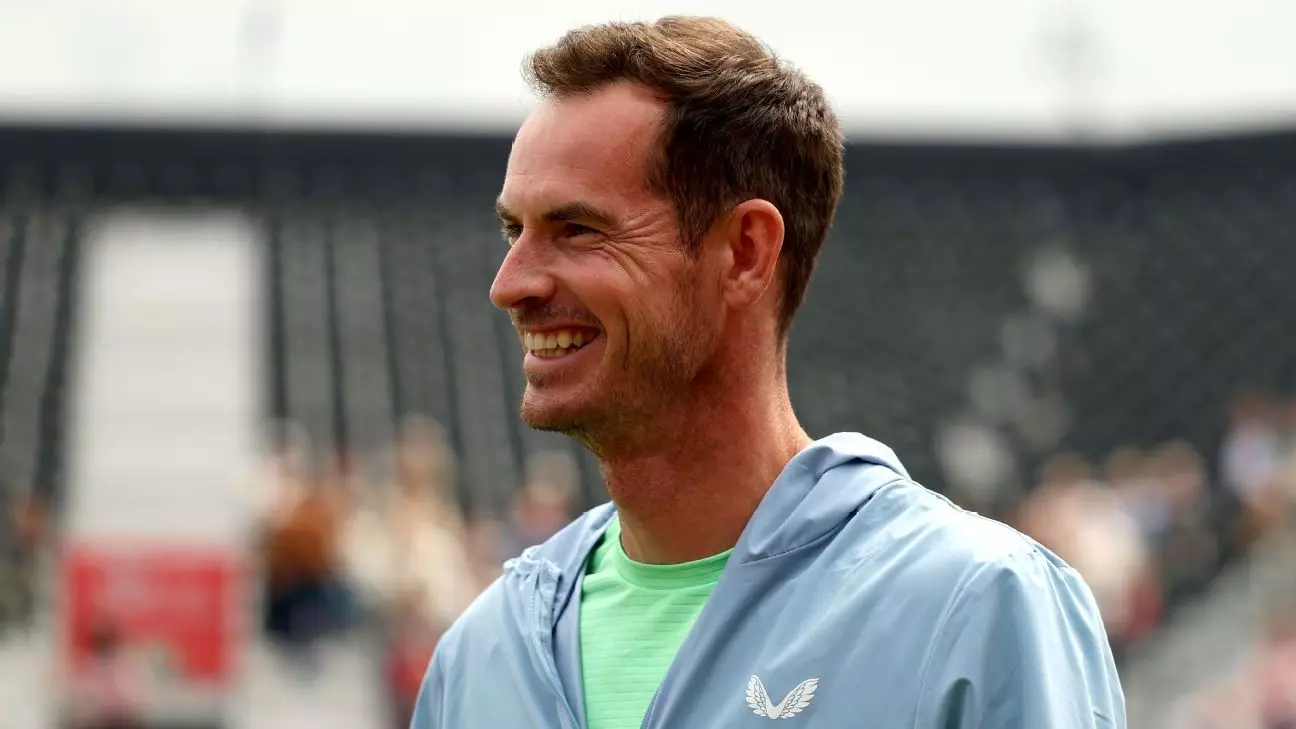Andy Murray’s recent revelation regarding his coaching stint with Novak Djokovic invites both intrigue and speculation about the future of the British tennis star. After a six-month partnership peppered with challenges, including unfulfilled expectations in competitive results, Murray has expressed a willingness to engage in coaching once again—but not immediately. This admission opens up discussions about the complexities of athlete transitions and the skills that define a great coach.
Murray’s foray into coaching, albeit brief, provided a unique lens into the intricate sports dynamics of working alongside one of the greatest players in tennis history. It stood as an opportunity for immersive learning and a chance to build meaningful relationships on a personal as well as professional level. Despite a relatively short timeframe, the collaboration was characterized by enriching experiences, even though the outcomes may not have fully matched their ambitions. Such reflections indicate that growth extends beyond accolades, emphasizing the value of mentorship and knowledge exchange.
A Shift in Focus: From Tennis to Golf
Since his retirement last summer post the 2024 Paris Olympics, Murray has seemingly embraced a new chapter in life, dedicating more time to golf than to the tennis courts. This pivot to golf serves as a metaphorical breathing space for the player who spent years battling for supremacy on the tennis circuit. By stepping away from the intense scrutiny of the sport, he is exploring leisure and personal interests—elements that were often overshadowed by the rigorous demands of his tennis career.
This transition also subtly highlights a significant aspect of athlete identity. Recognizing the mental and emotional exhaustion that comes with professional sports, it is essential for athletes like Murray to reclaim a sense of normalcy away from competitive pressures. His humorous admission of poor tennis skills while participating in a fun event demonstrates self-awareness and a refreshing realism; he acknowledges the distance he has traveled from the sport that made him famous.
The Coaching Landscape: An Opportunity for Growth
Looking forward, the possibility of returning to a coaching role is ripe with potential. Murray’s experience offers a unique vantage point for aspiring athletes, as he understands both the challenges and triumphs of high-level competition. He carries the weight of personal experience along with insights gathered through his partnership with Djokovic. These elements could forge his coaching approach, emphasizing resilience, strategy, and the mental fortitude required to succeed in sports.
However, diving into coaching will necessitate a careful evaluation of timing and readiness. Murray wisely expresses that while coaching intrigues him, he isn’t rushing into it. This speaks volumes about his desire for a fulfilling experience rather than one driven by external expectations. As he contemplates this future role, one can speculate whether his insights and those “special moments away from the court” can be transformed into lessons for future generations.
Murray’s journey illuminates more than just the potential of future coaching; it serves as a reminder of the multidimensional identity of athletes beyond their playing days. Enjoying life outside of competitive sports, while harboring ambitions such as coaching, signals a maturation that could inspire many within the sporting community. For Murray, the question isn’t just whether he will coach again, but how his evolving narrative will shape the next generation of tennis champions.

